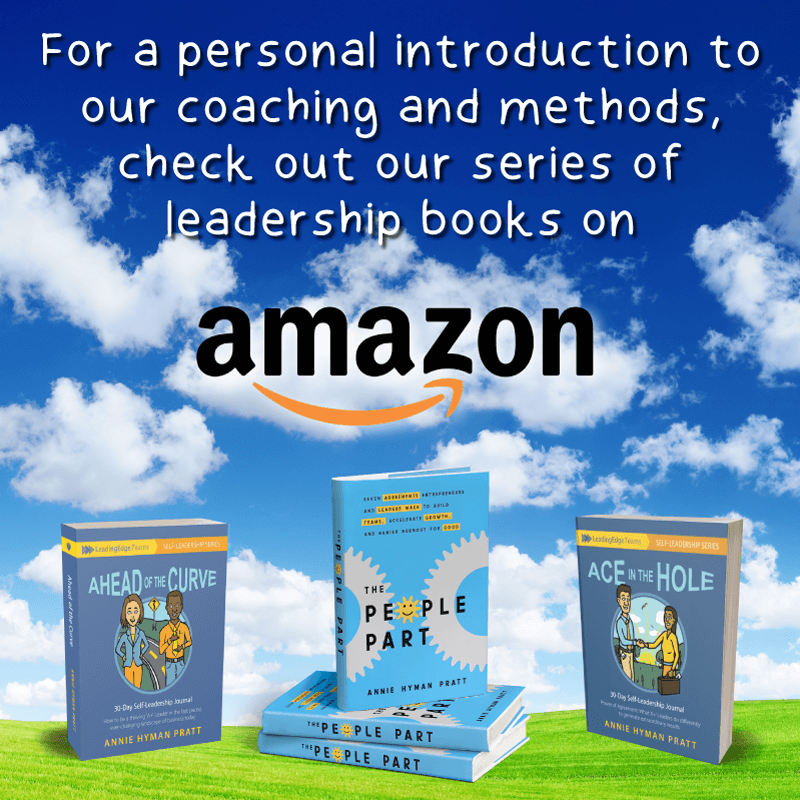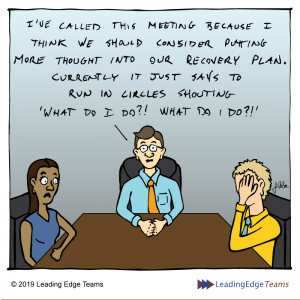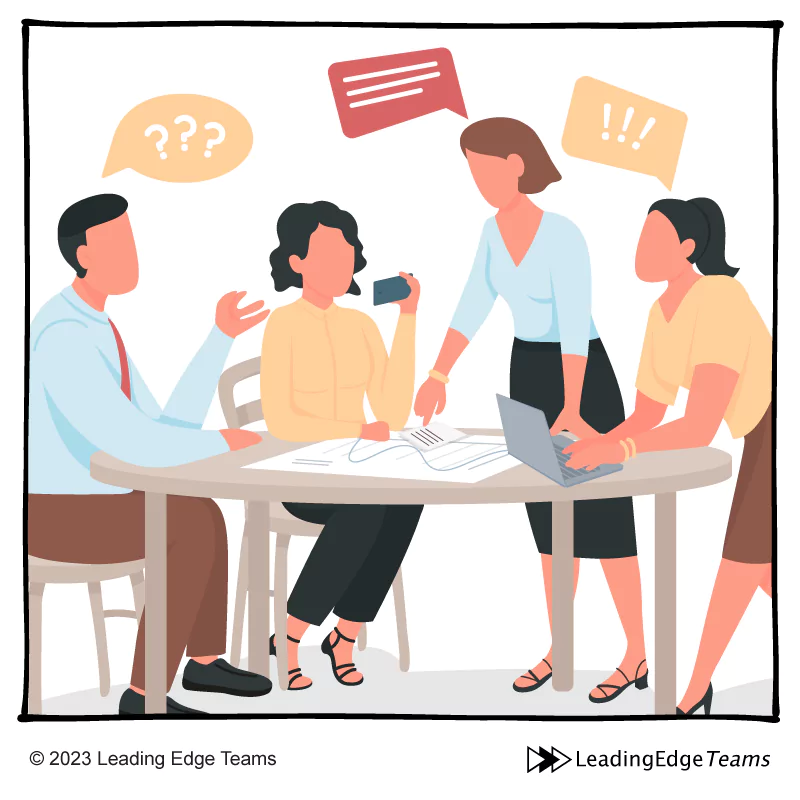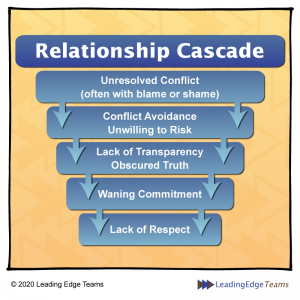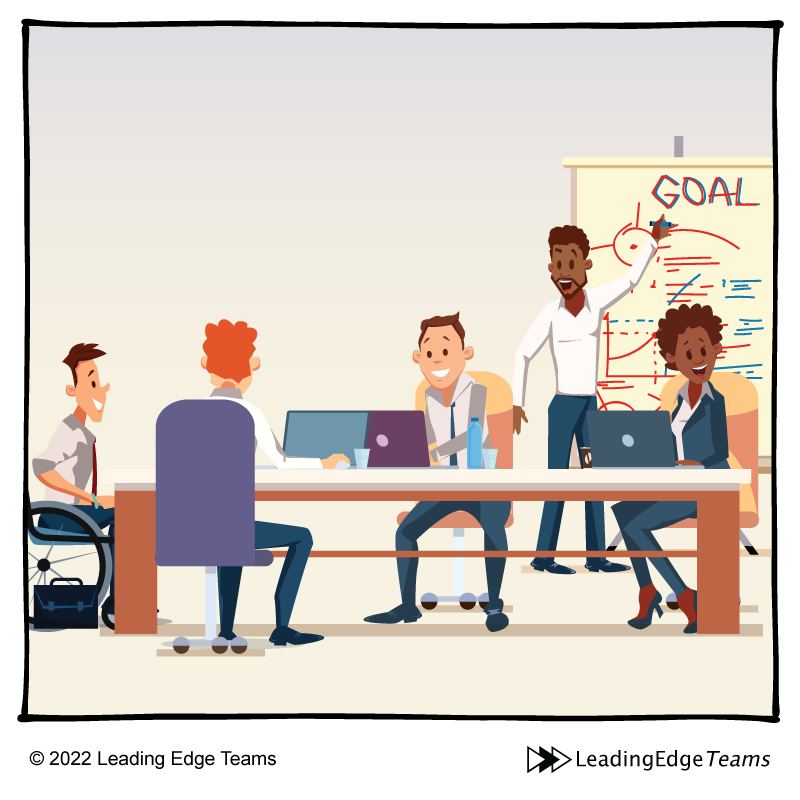As a business owner, you know that having good systems, processes, and goals is important. But did you know that the happiness and well-being of your employees are as critical to your success? Do not underestimate the value of mastering your relationship repair skills.
According to a Gallup study, companies with high employee engagement have 21 percent higher profits than those with low engagement. In other words, a positive work culture and strong employee commitment can significantly impact your bottom line. So, it's essential to prioritize the “People Part” of your business and make sure that your employees are happy, motivated, and satisfied in their role.
For this reason, how do you create the conditions needed for a thriving team? According to a study by Google, the number one thing that high-performing teams need is psychological safety. Meaning that the fuel for high-performance is working in an environment that is safe from blame, judgment, and criticism. Can you see it? Emotionally feel it? You must cultivate a workplace where team members are comfortable sharing their thoughts and ideas, taking risks, and collaborating with their colleagues.
When we have secure relationships with our colleagues, we are more willing to step up and take ownership for delivering results.
The team’s psychological safety directly correlates to your business success; this concept is one we all need to get! To have a winning team all members must participate in up-leveling how they work together. Building a psychologically safe environment takes effort from every member of the team. Each person must practice Self-Leadership and willingly do their part, daily, to create and maintain secure relationships with their teammates. For more about our special process to strengthen your emotional endurance and ability to show up in Self-Leadership read The People Part, Chapter One.
That said, what if your team interactions indicate that your environment is not psychologically safe? Maybe team members are reluctant to share in meetings. Perhaps you’ve noticed a lack of transparency when breakdowns occur. Don't worry, there are proven ways to repair relationships, increase team safety and get things back on track. But first you need to become aware that the psychological safety and secure working relationships are falling short within your company.
It's so important to catch conflicts early on and repair them as soon as possible. But HOW do you do that?
When conflicts do arise, approach them with a mindset of curiosity rather than blame. Ask questions to understand the other person's perspective and listen actively. Avoid getting defensive or jumping to conclusions.
It's important to create a culture of open communication; encourage team members to speak up when something bothers them. As a leader your actions carry weight, so it's important to model this behavior and demonstrate vulnerability by admitting when you've made a mistake or need help.
Focus on what you can do differently to foster a safer team environment. After all, the place you have greatest leverage to influence change is through your own choices.
As humans, your default can be to focus on others; notice what they are doing that is not working, or somehow could be better or different. While there are times this is necessary, the fact remains that no matter what you do, you cannot force another person to change. The most influential people realize that it is through their consistent actions that they truly lead. It is the behavior they choose in response to situations they face that defines their professional reputation.
You are always able to choose how you show up. Choose wisely.
By choosing to repair relationships and take responsibility for your responses, you can build a healthy team that drives business success. A team you are proud to be a part of, that achieves what it sets out to do, while bringing out the best in one another. Your team is the most valuable asset of your business, treat it as such.
The key to maintaining secure working relationships is to take responsibility for your own actions and their impact on others. This requires you to slow down and consider what it might be like in another team member’s shoes. Your willingness to try to see things from another vantage point is an incredibly generous act. Whether you get it 100 percent right or not is not important, but your willingness to try to understand another’s experience pays great dividends. By demonstrating that you genuinely do care for those you work with, you in turn create a unified team committed to giving their best. So, remember, you may not be able to control what happens or how others respond, but you can always choose your response.
The best leaders demonstrate compassion under pressure.
Business situations today are becoming increasingly complex, with a faster rate of change, with myriad external factors that impact results and require plans to be adjusted.
Obviously, it is a challenging environment, and it is important to have compassion for oneself and others. One common mistake people make is assuming negative intent behind negative impacts (the ways we bump up against one another in daily teamwork), but the truth is, the best of intentions can go awry and have negative impacts on others. That is why showing compassion towards oneself and others can be an important factor in effective teamwork
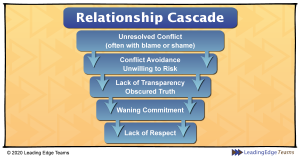
Our (Leading Edge Team’s) “Relationship Cascade” model explains how relationships can break down, with unresolved conflicts leading to avoidance, deteriorating safety, and less psychological safety overall, which ultimately results in lack of transparency, waning commitment, and a team that is no longer cohesive. It is crucial to interrupt this cascade before it gets too far down. As most have experienced at one time or another, repairing relationships becomes more difficult with each layer of conflict and avoidance.
When anyone gets to the point where the relationship feels no longer safe and commitment and compassion are waning, it becomes much harder to choose to repair it. In our work with companies, this is where we see team members disengaging, not showing up, and maybe even leaving the company altogether. At this point, the damage is done, and it's difficult to rebuild trust and restore relationships.
Mistakes happen every day. How you navigate them together matters.
Now, when you work on a high performing team—with tight deadlines, limited resources, and big goals—things can go differently than you intend. Sometimes, you accidentally make each other’s jobs harder. This is part of the reality of being on a team, especially in today's business environment. You may accidentally send a curt Slack message when you’re tired and run down, and negatively impact someone on your team who is also running on empty. At the moment, with your focus on quickly completing the task at hand, most likely you aren’t aware that you are causing harm. However, next time, you can choose to move more intentionally, with more awareness of your impact on others.
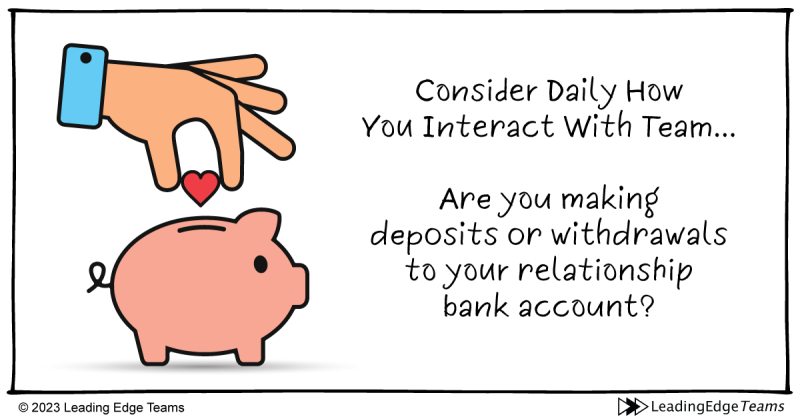
“The Relationship Bank Account.” It can be helpful to consider this metaphor and evaluate our interactions daily or at least weekly.
Consider what your teammates would say about their experience of working with you. When everyday teamwork incidents happen, each incident takes slight withdrawals from your relationship bank account with your team members. And it is up to each team member to take notice and repair when possible (the sooner the better as the relationship cascade teaches).
Withdrawals will happen, mistakes and miscommunications in teamwork are inevitable, as we are all human. As a coach, I advise leaders to anchor in their leadership reputation; meaning when the going gets tough remember what you are going for in the bigger picture. Because your leadership reputation is formed in the challenging moments, not when things are easy. By keeping this in mind and making a conscious effort to build positive relationships, you can make a positive impact on your team's success.
As Maya Angelou once said, “I've learned that people will forget what you said, people will forget what you did, but people will never forget how you made them feel.”
In the context of teamwork, this means that the impact we have on others is what they will remember, whether it's positive or negative.
If withdrawals happen from your relationship bank account (and they will), it's no big deal, but be intentional and make positive cash flow deposits into the relationship bank account as soon as you can naturally do so. And take note, if you've done a bunch of withdrawals through a rough patch, then one deposit back is not going to make up for all the depletion in the bank account. Sometimes, humans have a real gap with that and think that one acknowledgment of “I'm sorry” makes it all better. You must commit to ongoing repair; by being willing to make numerous deposits to get the account solvent.
Building secure working relationships within a team isn't always easy, but it is worth the effort.
To navigate your relationships on a daily basis requires compassion. Working closely with the same individuals every day can lead to conflicts and misunderstandings. I encourage you to become aware of the relationship cascade, which teaches that small conflicts can escalate and impact the entire team, and the relationship bank account concept, which suggests that positive actions can build up a reserve of goodwill among team members. By learning more about these concepts and applying them, you can strengthen your work relationships and become part of a powerful team.
For each team member to consider: Where am I in the “cascade?” How depleted is this “relationship bank account?” How many deposits do I have to make to complete the repair? How can I take action to turn this around?
An apology is not an admission of guilt. It is a form of repair.
Often in business, how you get things back on track is measurable. This is good news, because there is a clear path. And in business, this can be somewhat easier to find than in your personal relationships. In any form of repair, you must first recognize that what you did had an impact on another person. Once you are aware of being in a space of choice, this allows you to consider what needs to shift to have things begin to repair and go forward. An apology is not about saying, “Oh my gosh, I was so wrong, I'm terrible, it was all my fault.” That is part of a self-protective blame shame game.
From a fresh place of Self-Leadership, an apology becomes a super useful tool of repair. In action you apologize for the negative impact your behavior had on the person or persons. Then describing what you intend to do differently in the future communicates to the team member(s) that you do care. This gives them confidence in your apology, and helps you all improve as a team.
“Relationship Repair” demonstrates compassionate leadership.
Remember, repairing relationships within your team is not a one-time event, but an ongoing process that requires consistent effort and attention. By prioritizing the “People Part” of your business and investing in your team's relationships, you can create a healthier, more productive, and ultimately more successful workplace.
What will you do differently today to nurture your relationships with your coworkers so that you stay aligned on the business journey as a team?
Start today!
Coach Heather




